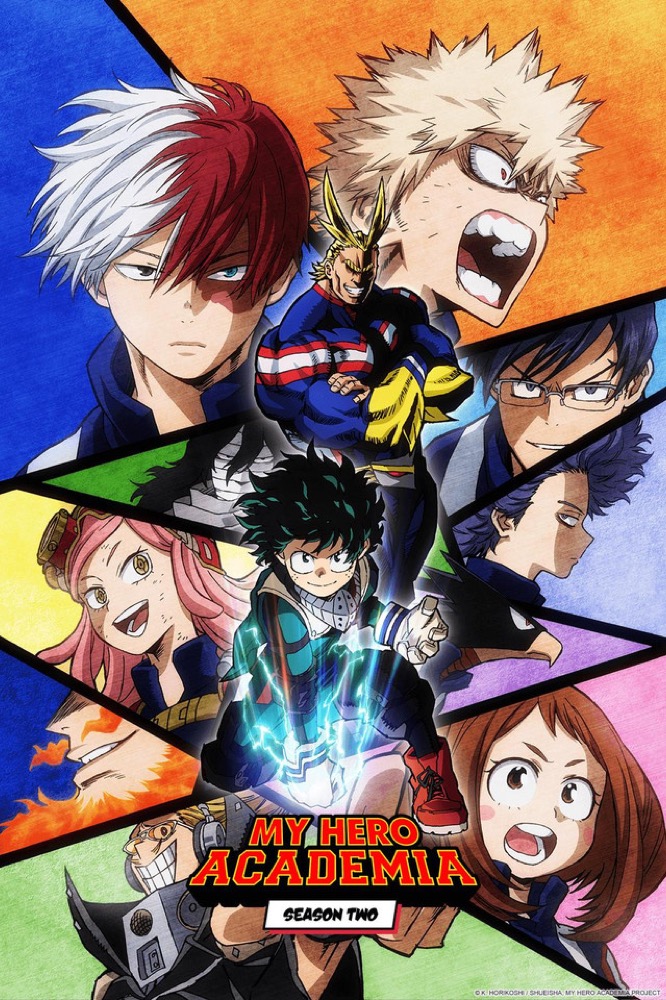Freshman Press
The American appeal of anime show ‘My Hero Academia’
Due to a lucky combination of merit and chance, one young adult is imbued with unique responsibilities and powers. This special individual is determined to prove themself to rivals and doubters, work hard to succeed without others’ help and become a symbol of hope and leadership for a generation. Sound familiar?

Whether this premise reminds you of Harry Potter or Luke Skywalker, the “chosen one” story is ubiquitous in Western media. It’s less common in Eastern cultures, yet it’s a surprisingly prominent theme in the Japanese anime and manga rapidly gaining international popularity, “Boku no Hero Academia,” also known as “My Hero Academia.” In an alternate universe where nearly everybody is born with superpowers called quirks, Kohei Horikoshi’s hit series follows a group of students training to be professional, government-paid superheroes. Though this may sound generic, the series regularly ranks as the world’s second best-selling manga magazine, has over 10 million manga copies in circulation and is sold in major American bookstores like Barnes & Noble. So, why does “My Hero Academia” stand out to an international audience amidst the hundreds of shows Japan exports every year? As a fan of the series, I have a couple ideas.
Now more than ever, America is in love with superheroes. Since the launch of the Marvel Cinematic Universe, comic book culture has experienced a national renaissance. Six DC and Marvel films are slated for 2017 alone. Just when the market appears oversaturated, movies like “Wonder Woman” or “Deadpool” present slightly different characters than we’re used to, and the public flocks yet again to the big screen. “My Hero Academia” embraces this trend head-on. Its world’s biggest hero, All Might—drawn with bold shadows and colors reminiscent of old comic art styles—is an obvious homage to Superman. The main character, Midoriya Izuku, is born quirkless and bullied relentlessly a la Spiderman, then gains powers because of strength of character in a Captain America-style twist. The comic-inspired “My Hero Academia” holds appeal for a superhero-obsessed American audience.
The series’ roots in American culture don’t stop there. Western countries favor individualism; the pervasive “chosen one” storyline is an example of this mindset. Eastern countries like Japan, however, are collectivist, meaning the group is prioritized over the individual. Their media usually reflects this. But in a genre infamous in the West for celebrating cooperation to the point of insipidness (the power of friendship comes up perhaps one too many times), “My Hero Academia” emphasizes, well, the opposite. Friends double as rivals and act as motivators for individual success; the protagonists’ ultimate goal of becoming the best heroes possible never wavers. Sure, it’s a Japanese show with primarily Japanese values, but it offers surprisingly strong undertones of American individualism. To foreigners—both regular anime viewers bored with a collectivist culture’s tropes and newcomers used to solely individualist stories—“My Hero Academia” feels refreshing in its embrace of each.
So, whether you love the revival of superhero movies or want something fresh, whether you like comedic friendship stories or are looking for something exciting and empowering, whether you’ve never heard of anime or consider yourself an avid fan—give “My Hero Academia” a shot. It’s impressed a lot of people around the world already. It might surprise you too.
